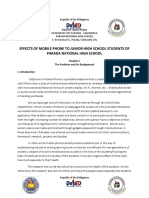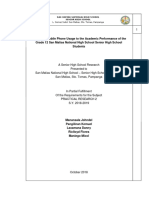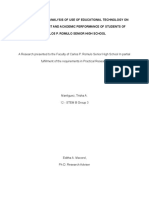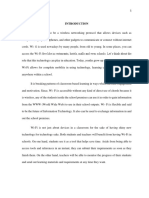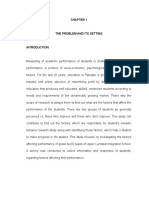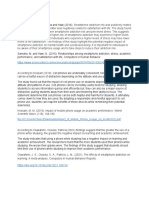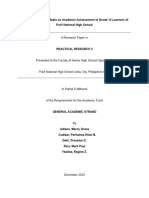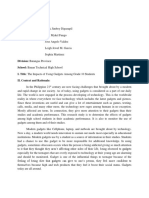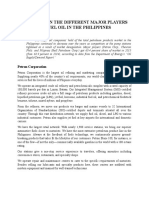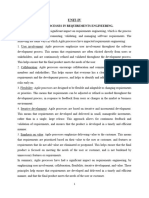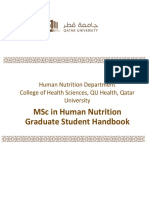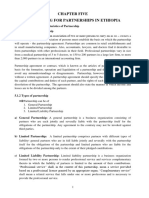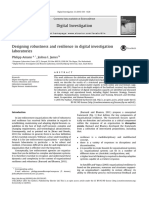0% found this document useful (0 votes)
2K views8 pagesI. Research Title
This study examines the impact of mobile phone usage on the academic performance of high school students. It uses a mixed methods approach including surveys and interviews of students to understand their mobile phone usage patterns and how it relates to academic results. Both positive and negative impacts of mobile phone usage on learning are discussed.
Uploaded by
Ninja do You tubeCopyright
© © All Rights Reserved
We take content rights seriously. If you suspect this is your content, claim it here.
Available Formats
Download as DOCX, PDF, TXT or read online on Scribd
0% found this document useful (0 votes)
2K views8 pagesI. Research Title
This study examines the impact of mobile phone usage on the academic performance of high school students. It uses a mixed methods approach including surveys and interviews of students to understand their mobile phone usage patterns and how it relates to academic results. Both positive and negative impacts of mobile phone usage on learning are discussed.
Uploaded by
Ninja do You tubeCopyright
© © All Rights Reserved
We take content rights seriously. If you suspect this is your content, claim it here.
Available Formats
Download as DOCX, PDF, TXT or read online on Scribd
/ 8




